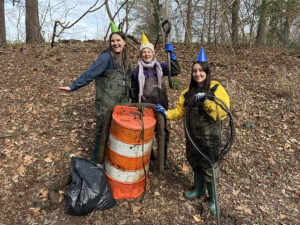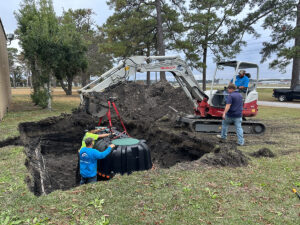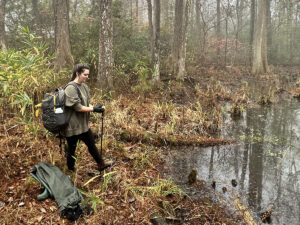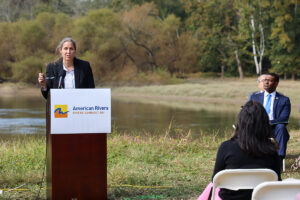News

Little has changed in Blounts Creek over the past decade. Besides a few more waterfront homes, it’s as peaceful and quiet as ever; the fishing is still good and the wildlife still abundant.
But that could change, as this is the year the battle to Save Blounts Creek will come to a conclusion. After a three-year wait, the case was finally heard by the North Carolina Supreme Court on April 27.
“We’re grateful to the attorneys at the Southern Environmental Law Center that have stuck with us and worked with us for over 10 years now to try to save this creek. Now we’ll wait on a ruling from the Supreme Court,” said Sound Rivers Executive Director Heather Deck.
The story of saving Blounts Creek, however, started 10 years ago.
It was 2013 when the Southern Environmental Law Center filed the original case on behalf of Sound Rivers and N.C. Coastal Federation, arguing that a water-pollution permit issued by the North Carolina Department of Environmental Quality failed to protect Blounts Creek. The permit would have allowed a Martin Marietta Materials’ limestone mine to discharge up to 12 million gallons of fresh water per day into the popular fishing creek and tributary in Beaufort County. It was a prospect that would have permanently changed the creek’s flow, its pH and its diversity of fish and high-quality fish habitats.
That permit was voided by a Superior Court judge in one of the many hearings over the past decade as the case bounced between the Office of Administrative Hearings and Superior Court multiple times. The permit was reinstated again when the N.C. Court of Appeals overturned the lower court’s ruling. Now, it’s expired altogether.
In July 2020, SELC, on behalf of Sound Rivers and other stakeholders, asked the N.C. Supreme Court to review the N.C. Court of Appeals’ decision to uphold the permit.
“Blounts Creek is a special place that is treasured by local residents and visitors alike,” Heather said. “I have looked forward to our day in court and believe the North Carolina legal system will ultimately decide to protect the integrity of our state’s waters and protect Blounts Creek for today’s residents and future generations.”
Protecting the creek has always been the primary purpose of the challenge. Before NCDEQ issued the permit to Martin Marietta, state wildlife agencies and the Environmental Protection Agency objected to the company’s plan to discharge all water used in the mining process into the creek. They, Sound Rivers, and others encouraged the company to come up with another option, one less harmful to the thriving fish populations in Blounts Creek.
“Generations in Beaufort County have grown up fishing and boating on Blounts Creek,” Heather said. “It’s that natural diversity of life that so many people cherish and want to protect.”
Throughout the case, Martin Marietta has argued that Sound Rivers and N.C. Coastal Federation were not permitted to file this case in the first place, because they have no “standing.” Both Superior Courts and a unanimous panel of the N.C. Court of Appeals have disagreed and gave the conservation groups the green light to pursue the case.
“One of the things that Martin Marietta keeps trying to do is to restrict people’s access to the courts,” Heather said. “This is a broader battle for the public’s right to challenge permits, because we know that government sometimes gets it wrong.”
Related News

Welcoming the new year with a recap of 2024!
December 27th 2024

Trash traps get holiday cleanouts!
December 19th 2024

Underground cistern a first for Sound Rivers
December 19th 2024

Campus Stormwater takes on Northern Nash
December 19th 2024

It's the holidays (and we like gifts too!)
December 19th 2024

Riverkeeper, specialist seek answers in Slocum swamp
December 19th 2024

Progress on Smithfield pollution problem
December 19th 2024


